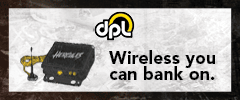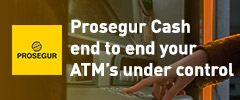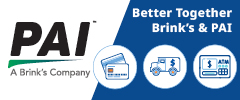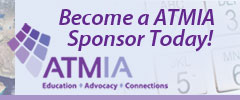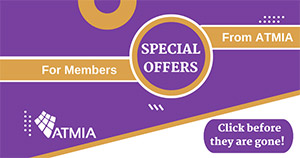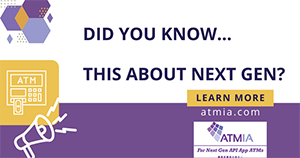
Is Coronavirus spreading through cash?
Thursday, March 18, 2021
View ShowroomCash is not the enemy in the COVID-19 crisis…
As the world goes into lock-down, it’s important to keep up to date with what’s happening all over the globe. However, it can become too easy for us to get caught up and swept away by everything on the internet right now… deciphering between what’s real and what’s fake.
Our aims in this article is to offer information on everything you need and want to know about cash and COVID-19!
So, is Coronavirus spreading through cash?
As the effects of the COVID-19 pandemic continues to unfold, there has been conspiracies about the transfer of germs through cash… but with the support of many banks and reputable sources, we are here to reassure you that at a time like this, cash should not be feared.
Companies within the cash industry, such as ATM Providers, continue to work hard to ensure that communities have access to funds at all times. This is what the ATM Industry Association had to say:
“We want you to know that we are taking every precaution possible to ensure that cash will continue to be available and safe to use. Skilled and experienced operators know the importance of sanitising the machines regularly and using bank-supplied currency.”
We believe cash is an important asset to have right now, especially as businesses, markets and societies are beginning to fall under the strain that this virus is bringing to not only the economy but the wider communities.
There is no scientific evidence…
Many national banks and organisations such as the World Health Organisation (W.H.O), the European Central Bank and more have confirmed that there is no scientific evidence that there’s an increased risk of spreading the virus through the use of cash.
In fact, W.H.O. spokesperson Fadela Chaib confirmed that W.H.O. was “misrepresented” when a UK paper stated that banknotes may be spreading COVID-19.
“W.H.O. did NOT say banknotes would transmit COVID-19, nor have we issued any warnings or statements about this.”
So, you don’t need to stop using cash! You just need to make sure that (as with any surface/object,) you wash your hands after touching, especially if it has been publicly handled or touched. If you can’t wash your hands straight away, simply avoid touching your face until you have access to soap and water.
Cash is no more to blame than doors, table surfaces, pin pads, shopping trolleys and mobile phones!
And to the Retailers that are still openly serving the public… you should continue accepting cash! Refusing cash could put an undue burden on, particularly the elderly, who are relying on their neighbours to go shopping for them.
Furthermore, the 1.5 million people who have been advised not to go outdoors due to underlying health issues and that are solely reliant on the NHS volunteers and anyone who has had to self isolate – these groups may well depend on cash as a means of payment. Banks strongly advocate that retailers continue to accept cash to ensure the public has access to the goods and services that they need during this difficult time, this is supported by the Bank of Canada.
As sourced by organisation, Cash Matters, these are the most asked questions based on the main question, is Coronavirus spreading through cash?:
Q: Is Coronavirus spreading through cash?
A: No, it is understand that COVID-19 spreads mainly through person-to-person contact and cough droplets, therefore the chances of it being transmitted via traded objects like packages, food or cash is extremely low. The World Health Organisation (WHO) released a statement specifically to clear cash of blame regarding Coronavirus.
Q: How low is the risk of coronavirus on cash?
A: All surfaces can generally, carry the virus or any bacteria, but reports that unfairly single out cash raise red flags since all surfaces (such as, food wrapping, cards, pin pads, mobile phones, tables, keyboards and doorknobs) are all equally at risk. Coins, interestingly, “are actually very bad environments for viruses to survive,” said Dr Christine Tait-Burkard, an expert in infection and immunity.
The International Currency Association (ICA) welcomed the WHO’s retraction of its initial statement and provided it with a list of expert opinions, particularly confirming that banknotes do not carry coronavirus. Read more here.
The bottom line, is that no dry surface should be feared as a carrier of the virus, but, it is always good practice to wash your hands regularly and avoid touching your mouth, eyes or nose if you’ve handled anything that has been touched by a member of the public.
Q: Are countries going cashless as people self-isolate and rely more on online deliveries?
A: Unlikely! The demand for cash is actually on the rise as a result of global pandemic uncertainty.
Some governments have taken to collecting as many banknotes in circulation as possible to cleanse them with infrared light and reintroducing them two weeks later. Others are introducing plans for sending direct cheques and cash payments, loans or further assistance to small businesses and vulnerable individuals. This charity, is giving cash directly to Americans suffering during the Coronavirus crisis.
Q: But if I suspect my cash has been contaminated, what do I do?
A: According to the U.S. Centres for Disease Control and Prevention, the Coronavirus can only be passed on via inanimate objects if the handler then touches a mouth, nose or eye but only within a short window of time. The virus cannot survive on dry surfaces for long and current estimates find that banknotes can only hold the virus for up to 2 hours. The advice for germaphobes fearing the checkout employee is simply wash your hands when you’re done with your wallet. Same goes for your phone. And any public door.
So, to sum up our research, you shouldn’t fear cash, just be sensible about the way you handle it and treat it in the same manner as you would when being out in public, after touching doors, handles, hard surfaces, shopping trolleys and baskets.
We also want to direct you to the NHS’s Coronavirus Conditions and ask you to learn these guidelines as it is imperative to stop spreading and wherefore, prevent the chance of infection!
DO:
- Wash your hands with soap and water often – do this for at least 20 seconds.
- Use hand sanitiser gel if soap and water are not available.
- Wash your hands as soon as you get back home.
- Cover your mouth and nose with a tissue or your sleeve (not your hands) when you cough or sneeze.
- Put used tissues in the bin immediately and wash your hands afterwards.
DON’T:
- Do not touch your eyes, nose or mouth if your hands are not clean.
We will make every effort to keep you as up to date as possible on current news and trends, so head over to our Facebook page. And if you have any questions regarding COVID-19 and how this effects ATM usage, please fill out this contact form and we’ll get back to you as soon as we can.
In the meantime, from the whole of Euronet… please stay educated, stay home and stay healthy.
Additional Resources from Euronet Worldwide
- 12/15/2022 - Euronet Launches Refreshed Brand Strategy, Including New Corporate Logo and Refined Mission Statement
- 11/14/2022 - Euronet Worldwide Partners with AeTrade Group to Build Landmark Real-Time Cross-Border Payments Solution for the African Continent
- 11/1/2022 - Euronet Worldwide Announces Strategic Partnership with TNG Digital to Power One of the Largest Non-Bank Prepaid Card Programs in Malaysia
- 10/27/2022 - Euronet Amends and Extends its Unsecured Revolving Credit Facility
- Show All Euronet Worldwide Press Releases / Blog Posts
